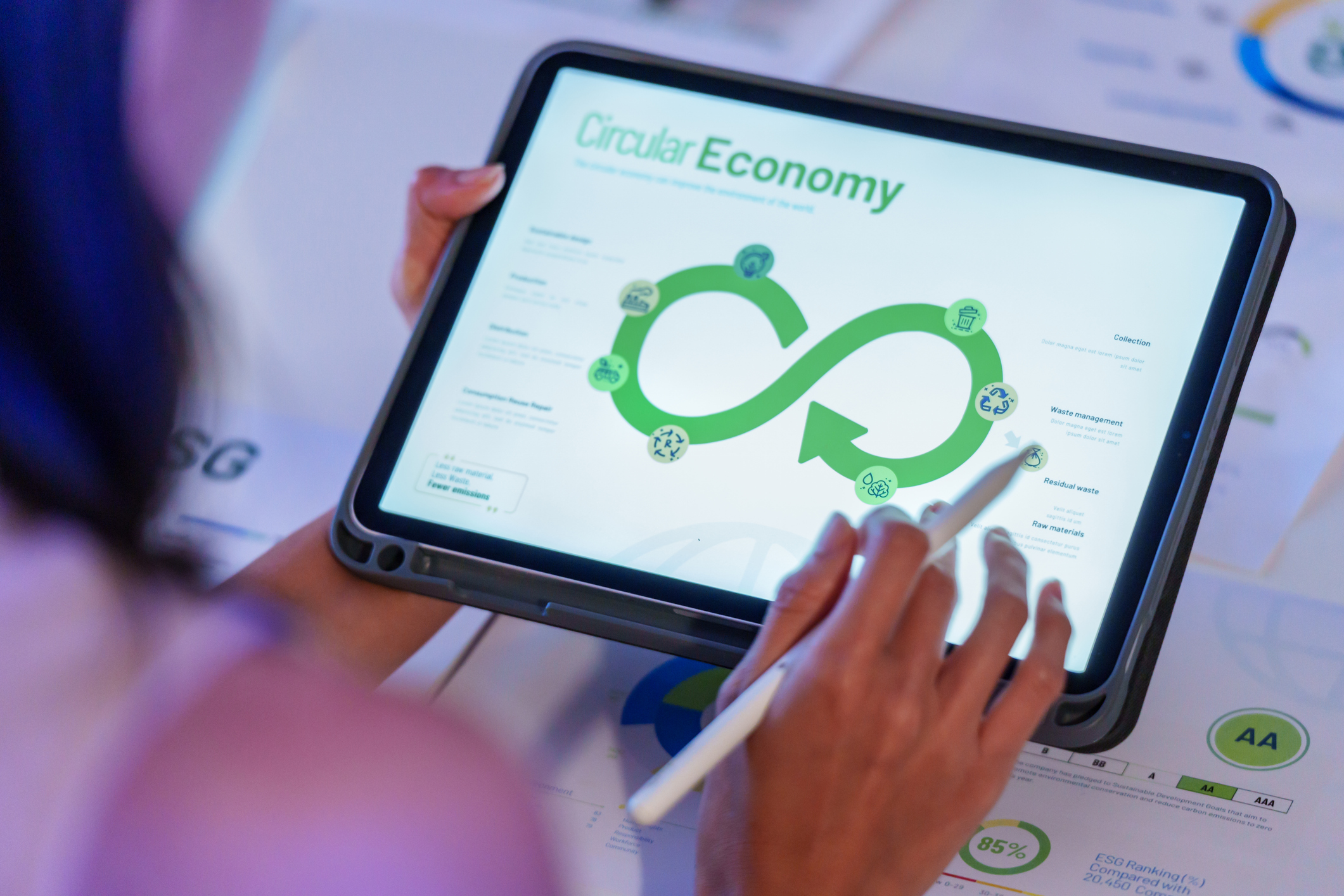
Imagine a world where waste is not just discarded, but reused, and natural resources are used intelligently and responsibly. This is the concept behind the Circular Economy, a model that has been gaining momentum in recent years and has become essential for companies that want to align their practices with ESG (Environmental, Social and Governance) principles.
Unlike the Linear Economy, which follows the “extract, produce, discard” flow, the Circular Economy is based on extending the life cycle of products, encouraging the reuse, recycling and repurposing of materials. In practice, this means less waste and more efficiency, meeting growing environmental and social demands.
In addition to being a key component in meeting ESG environmental goals, such as reducing carbon emissions, the Circular Economy brings clear competitive advantages to businesses. Companies that adopt this model can reduce operating costs by reusing resources and, at the same time, strengthen their brand image with social and environmental responsibility.
Another tangible benefit is innovation. By redesigning their processes to be more circular, companies open doors to new business models, attract investment and stand out in highly competitive markets. And that’s not all: this transition creates opportunities for sustainable economic development, generating jobs and promoting a more resilient production chain.
Turning waste into resources is the future of business. And for those who want to thrive in a world that is increasingly demanding in terms of sustainability, adopting the Circular Economy is not just a choice, but a necessity.
Share